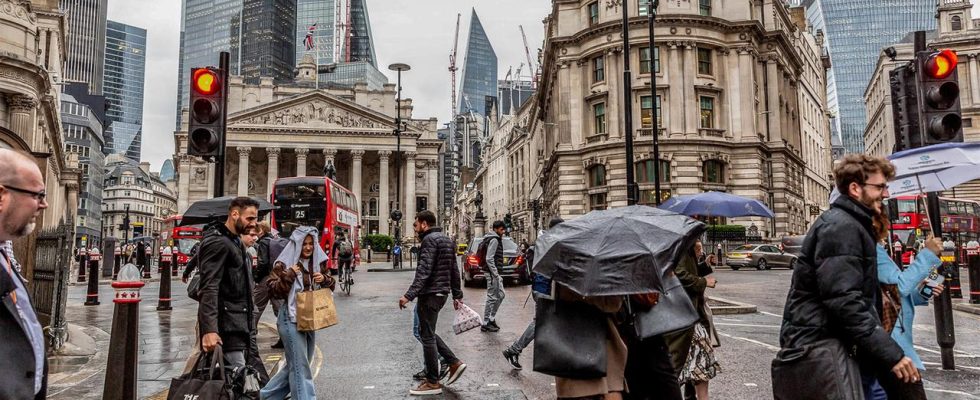Persistent double-digit inflation in the UK is forcing the Bank of England to raise interest rates again. It’s the highest level since 2008 – and it’s likely to get even higher.
The British central bank is continuing its fight against high inflation with another interest rate hike. The monetary watchdog around Andrew Bailey, head of the Bank of England (BoE), increased the key monetary policy rate by a quarter point to 4.50 percent on Thursday. It is the twelfth interest rate hike since the end of 2021. At the time, the interest rate was just above the zero line.
The central bank is trying to get the alarmingly high inflation on the island under control with ever higher interest rates. At 10.1 percent, the inflation rate is the highest in Western Europe: Great Britain is the only country in this region in the double-digit range.
Persistently high inflation
And according to the central bankers, it is likely to remain at a high level for longer than expected. One reason for this is the unexpectedly sharp and sustained rise in food prices. The BoE therefore revised its inflation forecast. The previous estimate was that consumer prices would fall below the 2 percent target within a year. The monetary authorities are no longer assuming this and are now forecasting that this inflation rate will not be reached until the beginning of 2025.
Part of the surge in inflation is also due to the country’s heavy dependence on imported natural gas for energy production, which has become much more expensive as a result of the Ukraine war. This statistical effect is likely to play a less important role in the inflation figures for the coming months.
Due to the latest wage rounds, the central bankers are worried that increased wage pressure could build up. The consequence of this would be that inflation would take hold.
Further rate hikes are to be expected
In the BoE, the current hike was controversial. Two members of the Monetary Policy Committee, Swati Dhingra and Silvana Tenreyro, voted for unchanged interest rates. The experts at the US investment bank Goldman Sachs assume that interest rates will rise further to up to 5.0 percent in August. According to the economists, the persistently high inflationary pressure speaks in favor of this, as does the relatively robust economy, which has not slipped into the recession feared by many economists.
This assessment is shared by other experts: “The new inflation projection shows that the key interest rate can continue to rise. The central bank is also likely to keep going because of the high wage pressure,” comments Alexander Krüger, chief economist at the private bank Hauck Aufhäuser Lampe.
The US Federal Reserve (Fed) and the European Central Bank raised their key interest rates by 25 basis points last week. While Fed Chair Jerome Powell hinted at a pause, ECB President Christine Lagarde said it was too early to consider a pause.

